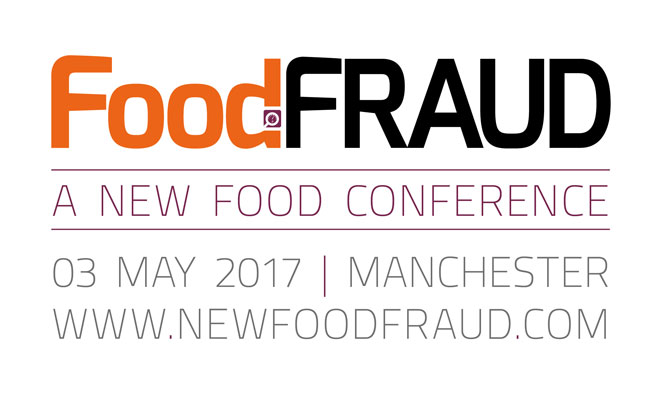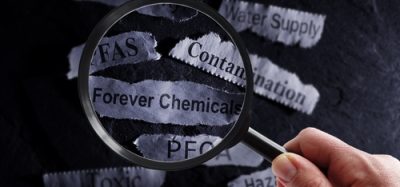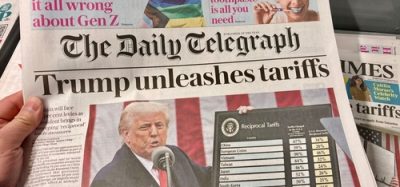Interview with Gavan Wafer, National Food Crime Unit | Fighting Food Fraud in 2017
- Like
- Digg
- Del
- Tumblr
- VKontakte
- Buffer
- Love This
- Odnoklassniki
- Meneame
- Blogger
- Amazon
- Yahoo Mail
- Gmail
- AOL
- Newsvine
- HackerNews
- Evernote
- MySpace
- Mail.ru
- Viadeo
- Line
- Comments
- Yummly
- SMS
- Viber
- Telegram
- Subscribe
- Skype
- Facebook Messenger
- Kakao
- LiveJournal
- Yammer
- Edgar
- Fintel
- Mix
- Instapaper
- Copy Link
Posted: 29 March 2017 | Gavin Wafer (National Food Crime Unit), Roy Manuell (New Food) | No comments yet
Gavan Wafer, Head of Crime Operations at the National Food Crime Unit offers his insight into tackling food fraud in the 21st Century.
As we look ahead to Food Fraud 2017 to be held at Manchester’s Renaissance Manchester City Centre Hotel on May 3, New Food Magazine brings you a brand new interview series with some of the industry leaders speaking exclusively at the event.
For more information on Food Fraud 2017, click here.

To begin the series, we asked Gavan Wafer, Head of Crime Operations at the National Food Crime Unit for his insight into tackling food fraud in the 21st Century.
Just how big an issue is food fraud at present in our industry?
Any industry is susceptible to fraud and one as complex and diverse as the UK food industry can offer temptations to those looking to exploit systems and cut corners. Where there are criminal profits to be made then unscrupulous operators will seek to capitalise on the opportunities on offer. In my law enforcement career I know that criminals will often seek to exploit weaknesses in any system that could generate income for them. Fraud is an acquisitive crime allied to a rational assessment by the criminal that balances the reward against the risk involved.
Where there are criminal profits to be made then unscrupulous operators will seek to capitalise…
A criminal embarking on an illegal enterprise will use their perceived logic – albeit often flawed – to commit their crimes without a proper understanding or knowledge of the law enforcement capabilities that increase their chance of detection. To the victim this is unimportant – their concern is that they have been misled or defrauded – but the impact is real.
I have been continually surprised at the quantity and scope of allegations that are made and issues that we uncover that span the whole spectrum of food products. Our knowledge is increasing all of the time and we have some very talented analysts examining where the current threats lie to enable us to direct our resources efficiently. Realistically food fraud only affects a tiny percentage of the food consumed in the UK but it can be serious.
I have been immensely impressed at the real appetite of the industry to tackle food fraud and there is no doubt that UK food is inherently safe. I am glad to say that even where the consumer is a victim of food crime it is very unlikely to impact detrimentally on their health They may be deceived or misled in what they are purchasing but it is very rarely physically harmful although there are circumstances that this does happen, such as around allergens which has led to some fatalities.
So I would say that food fraud is a serious issue, not confined to any particular sector or market and that constant vigilance is the best way forward. Like any form of crime we all need to be alert to it and help to defeat it, but not alarmed by it.
What sort of solutions might we need to consider?
There really is no silver bullet for this!
Food crime isn’t new – it’s been around since the Roman times if not before – but what is new is the law enforcement and industry approach to it. I am convinced that industry has many of the answers here and the NFCU is very keen to work with them. Last year we published a guide to how this might work which can be found on https://www.food.gov.uk/enforcement/the-national-food-crime-unit/industryguide-nfcu.
Why is the relationship between science and food so key to driving forward progress?
Any scientific analysis that demonstrates to a high level of certainty that a product has been adulterated or that its origin is suspect is of interest to the NFCU. Although science can offer many conclusive indicators that something has occurred it may not provide evidence as to how or why it has happened. Answering such questions requires further inquiries to be made and that is where I see NFCU Intelligence Officers providing the final pieces in the puzzle.
Could you give us an insight into the sort of operations the National Food Crime Unit undertake?
The NFCU is a criminal intelligence unit which was established to help protect consumers by detecting and facilitating the disruption of serious criminal dishonesty wherever it occurs within the food supply chain. Where we have identified offences then we will share intelligence with an appropriate law enforcement body for further action. One of my top priorities so far has been targeting those who market a dangerous chemical called 2,4 dinitrophenol (DNP) as a weight loss supplement.
The consumption of DNP is highly dangerous and has led to several fatalities in the UK. Generally DNP is advertised on the internet in capsule form. The NFCU has led a targeted campaign to inform the public and tackle the supply. This has included working with the police and local authorities to execute search warrants on suspected DNP suppliers. As a result there are several prosecutions pending which the NFCU instigated.
We are also involved in many more traditional food crime inquiries around the mis-representation of product provenance, origin or quality; diversion of waste products into the food chain; extension of ‘Use-By’ dates and unlawful meat processing – basically the full gambit of food crime offences!
Imagine we are having this conversation in a year’s time in the run up to Food Fraud 2018… What do you predict will have changed?
In late 2016 the NFCU was reviewed by an independent steering group. Their recommendations clearly signposted that, subject to securing funding, the NFCU should have an investigatory capability, have the prevention of food crime as part of its remit and set standards and training in food crime matters. There is a great deal of work ongoing to realise these recommendations and we are engaging with other government departments to secure broad agreement on the way forward. I would hope that by Food Fraud 2018 I would have a great deal more news on this front!
Why are events such as Food Fraud 2017 so important?
They allow meaningful, constructive and illuminating engagement across so many diverse bodies to better understand the food fraud landscape.
Sign up here for Food Fraud 2017…
Biography
Gavan Wafer has spent a career in law enforcement, with over 25 years work within enforcement and Criminal Investigation at HM Customs and Excise and then HM Revenue and Customs. During his service he investigated and prosecuted some of the UK’s biggest cigarette smuggling, alcohol diversion, fraud and money laundering cases and received judicial commendations for doing so. He joined the NFCU in November 2014 as the Head of Crime Operations.
Related topics
Food Fraud, Food Safety, Quality analysis & quality control (QA/QC)










